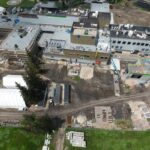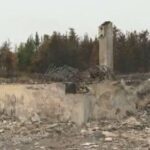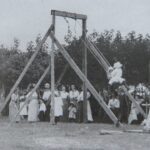In a concerning development for northern British Columbia residents, health officials have confirmed a measles exposure at Fort St. John Hospital, prompting urgent public health notifications across the Peace Region. Northern Health authorities issued an alert Thursday after identifying that individuals present at specific hospital locations on August 25-26 may have been exposed to the highly contagious virus.
“This is a significant public health concern requiring immediate attention,” said Dr. Rakel Davidson, Northern Health’s medical health officer for the Northeast region. “Measles is one of the most contagious infectious diseases, with airborne transmission that can occur even hours after an infected person has left a space.”
The exposure risk specifically applies to those who visited the hospital’s emergency department on Sunday, August 25 between 11:30 a.m. and 6:00 p.m., or Monday, August 26 between 10:00 a.m. and 2:30 p.m. Additionally, exposure may have occurred in the hospital’s imaging department on August 26 between 12:00 p.m. and 3:00 p.m.
Northern Health’s rapid response protocol was activated immediately upon confirmation of the case. Officials are now conducting contact tracing to identify individuals who may have been exposed and determine their immunity status.
Measles presents particular challenges for healthcare systems due to its extraordinary transmission efficiency. The virus can remain suspended in air for up to two hours after an infected person has left an area, creating exposure risks even without direct contact. Initial symptoms typically appear 7-21 days after exposure and include fever, cough, runny nose, and inflammation of the eyes, followed by the characteristic red rash.
“What makes measles particularly concerning is that people are contagious before they develop the distinctive rash,” explained Dr. Davidson. “This means transmission can occur before anyone realizes they’re dealing with a measles case.”
For those potentially exposed, Northern Health recommends immediate action based on vaccination status. Individuals born before 1970 or who have received two documented doses of measles-containing vaccine are generally considered immune. Those with uncertain immunity status should contact public health authorities to discuss appropriate measures, which may include post-exposure prophylaxis if administered within 72 hours of exposure.
This case emerges amid growing concerns about measles resurgence across North America. Once considered eliminated in Canada, the disease has seen periodic outbreaks in recent years, primarily in under-vaccinated communities. Public health experts attribute this resurgence to declining vaccination rates driven by vaccine hesitancy and misinformation.
The Fort St. John exposure follows several measles cases reported in British Columbia earlier this summer, raising questions about community protection levels in the region. Provincial health data indicates vaccination coverage for measles-containing vaccines has declined slightly over the past five years, creating potential immunity gaps in certain communities.
Northern Health has established a dedicated hotline for concerned residents seeking information about the exposure. Healthcare providers throughout the region have been placed on high alert to watch for symptomatic patients and implement isolation protocols when necessary.
As community members process this information, the critical question emerges: How can northern communities rebuild the vaccination consensus that once made measles a disease of the past rather than an ongoing public health threat?























